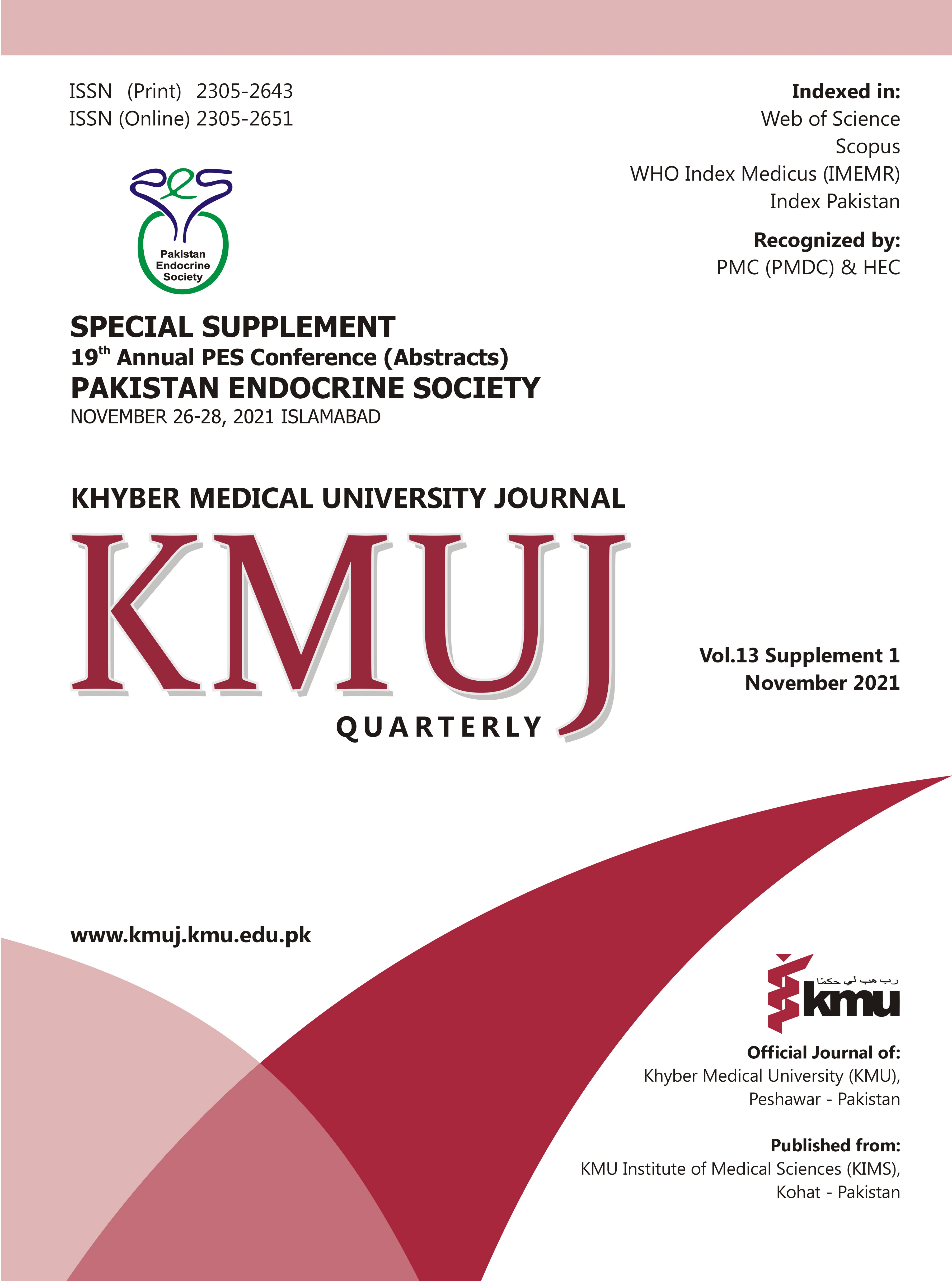SAFETY OF SODIUM-GLUCOSE COTRANSPORTER 2 INHIBITORS DURING THE MONTH OF RAMADAN IN PATIENTS WITH TYPE 2 DIABETES MELLITUS FROM A TERTIARY CARE CENTRE IN KARACHI, PAKISTAN
Main Article Content
Abstract
OBJECTIVES: To assess the safety of Sodium-Glucose Cotransporter 2 Inhibitors (SGLT2-I) during the fasting month of Ramadan, in a real-life scenario, by finding the frequency and severity of severe hypoglycemia, hyperglycemia, dehydration, or diabetic ketoacidosis (DKA).
RESULTS: Total of 101 participants were enrolled and because of pandemic, we were able to collect complete data on 84 (83.2%) participants. Majority (n=44; 52.4%) of participants were males. Mean age of patients was 52.4±9.5 years with an average duration of T2DM was 11.5±6.5 years. Most of the study participants (n=54; 64.3%) were on Empagliflozin (mean-dose=14.7±7.1 mg/day) and 30 (35.7%) participants were on Dapagliflozin (mean-dose=8.2±2.7 mg/day). Only six patients (7.1%) reported having mild hypoglycemia. No study participant had any severe hypoglycemia, hyperglycemia, dehydration or DKA that would have required hospital admission. Changes observed were in the HbA1c (7.6±1.2% from 7.9±2.4%, p=0.34), weight (78.1±13.1 Kgs from 78.7±13.4 Kgs, p=0.23) and in creatinine (0.9±0.2 mg/dl from 0.9±0.4 mg/dl, p<0.09) within six weeks post Ramadan.
CONCLUSION: SGLT2-I agents are safe and effective during the month of Ramadan in Pakistani patients with T2DM, without any additional adverse events.
Article Details
Work published in KMUJ is licensed under a
Creative Commons Attribution 4.0 License
Authors are permitted and encouraged to post their work online (e.g., in institutional repositories or on their website) prior to and during the submission process, as it can lead to productive exchanges, as well as earlier and greater citation of published work.
(e.g., in institutional repositories or on their website) prior to and during the submission process, as it can lead to productive exchanges, as well as earlier and greater citation of published work.
